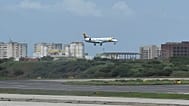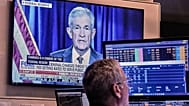NATO-led international peacekeepers, KFOR, said more than 200 Italian troops will assist their 4,300-strong force during the election period.
The European Union has set up an election observation mission to oversee the parliamentary elections in Kosovo, scheduled for 9 February.
A team of 100 observers will monitor the elections, underlining "continuous EU support for Kosovo to further strengthen its democratic governance," Nathalie Loiseau, the French MEP who has been appointed as chief of the mission, said.
She said the election will "showcase the plurality of Kosovo's political landscape."
In all, 27 political groupings will run for 120 seats in the parliament.
About 100,000 voters registered abroad have already started casting postal ballots.
The Serb minority has 10 secured seats in the parliament.
Ethnic Serbs make up about 2.3% of Kosovo's 1.6 million population, according to a 2024 census. Serbs largely boycotted that census and have not accepted the figures, calling them too low.
Loiseau said the elections are being held "at a moment when democracies are questioned, sometimes under threat globally...so the importance of having a vibrant democracy in Kosovo has never been bigger."
NATO-led international peacekeepers, KFOR, who have increased their presence in Kosovo after last year's tensions, said more than 200 Italian troops will buttress their 4,300-strong force during the election period.
In September 2023, Serb gunmen killed a police officer and barricaded themselves in an Orthodox monastery amid a standoff with law enforcement in an incident Kosovo blamed on Serbia, accusing it of organising a plot to grab its northern territory.
Kosovo blamed Serbia for an explosion that damaged water and power supply systems in November last year.
Belgrade denied both accusations, but tensions remain between the two neighbours.
Kosovo, a former Serbian province, declared independence in 2008, a move Belgrade doesn't recognise.
The EU and the US have urged both sides to implement agreements reached two years ago, which include Kosovo's commitment to establish an Association of Serb-Majority Municipalities. Serbia was also expected to deliver on de facto recognition of Kosovo.

















